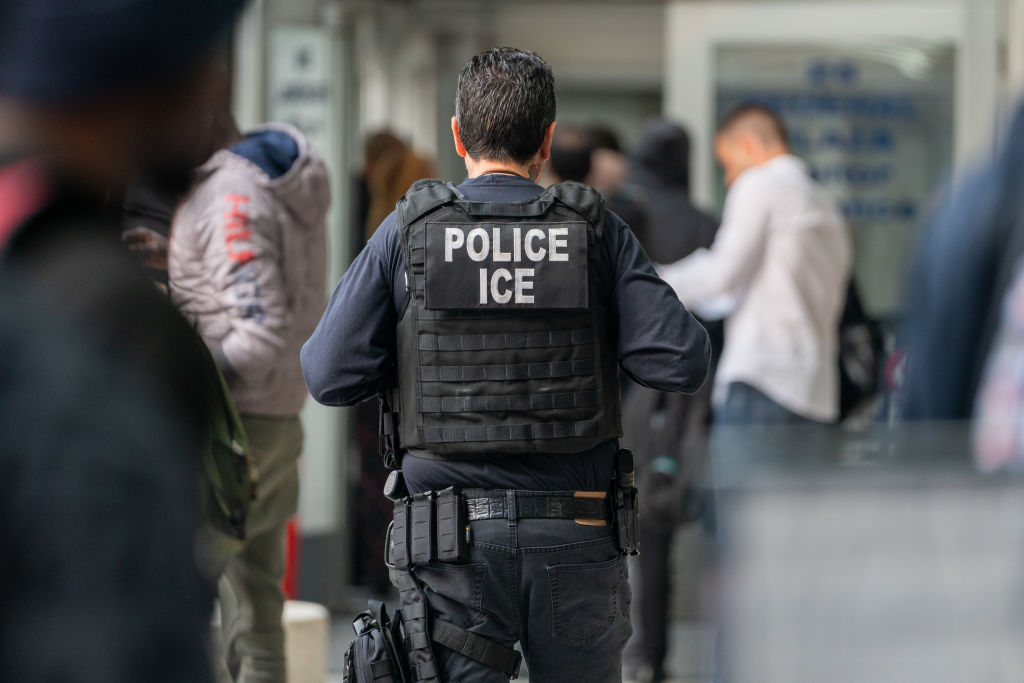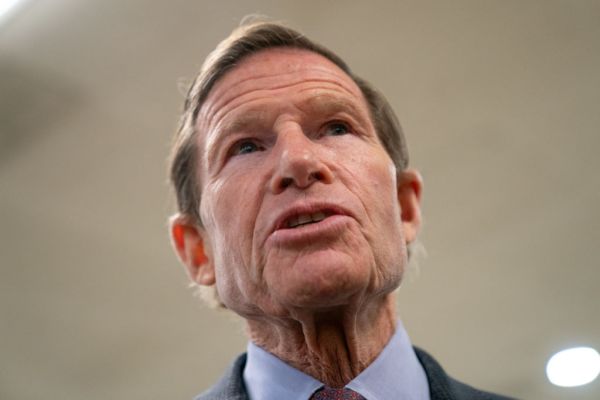Happy Friday! We remember the much-publicized municipal bidding war for the site of Amazon’s HQ2, but that’s got nothing on small towns’ efforts to land new Buc-ee’s locations.
Quick Hits: Today’s Top Stories
- U.S.-based private security contractors could begin operating in the Gaza Strip as soon as this weekend, multiple outlets reported Thursday. According to unnamed officials, the American contractors will run a checkpoint on the Netzarim corridor—which separates northern and southern Gaza—to inspect northbound vehicles for weapons as displaced Palestinians return home. The deployment is reportedly part of a “multinational security consortium” that is helping with the phased implementation of the Israel-Hamas ceasefire deal and will coincide with a gradual withdrawal of Israeli troops from the enclave.
- President Donald Trump revoked security protection for former Secretary of State Mike Pompeo and a former adviser and Iran envoy, Brian Hook. The move followed the president’s decision to end U.S. Secret Service protection for former National Security Adviser John Bolton on Monday. All three former officials have faced threats from Iran for their role in crafting the first Trump administration’s policy toward the Islamic Republic, prompting the Biden administration to extend their security details. According to Bolton, government agencies informed him earlier this month that the threat level remains the same as it was in 2022, when the Justice Department announced charges against a member of Iran’s Islamic Revolutionary Guard Corps for plotting his murder.
- Addressing the World Economic Forum on Thursday, President Trump indicated plans to work toward nuclear arms reductions with Russia and China—which have the world’s largest and third-largest nuclear arsenals, respectively. Trump, who delivered a remote speech to the annual gathering, said both Moscow and Beijing had expressed an interest in denuclearization during his first administration. “I can tell you that President [Vladimir] Putin wanted to do it,” he said. “And I think the rest of the world, we would have gotten them to follow. And China would have come along too. China also liked it.”
- A federal judge issued a two-week restraining order on Trump’s executive action attempting to end birthright citizenship for children born to people in the U.S. illegally or temporarily. Judge John C. Coughenour’s ruling came at the request of four states that filed a lawsuit challenging the order, which would upend the longtime legal interpretation of the 14th Amendment. “I have been on the bench for over four decades,” he said. “I can’t remember another case where the question presented is as clear as it is here. This is a blatantly unconstitutional order.” Coughenour added that he would consider issuing a preliminary injunction, which would block the order’s implementation while the case proceeds.
- President Trump on Thursday nominated Andrew Puzder, the former CEO of a fast food conglomerate, to serve as the U.S. ambassador to the European Union. Trump nominated the business executive to be secretary of labor in his first term, but Pudzer withdrew his nomination amid scrutiny of his business practices, allegations of domestic abuse, and collapsing support among Republican senators. The nomination followed renewed threats by Trump to impose tariffs on the economic bloc.
- The Senate voted 74-25 on Thursday to confirm John Ratcliffe as the next director of the CIA. Ratcliffe is a former Republican congressman from Texas who served as the director of national intelligence in the first Trump administration. Meanwhile, Pete Hegseth—Trump’s pick for defense secretary—advanced through a procedural Senate vote on Thursday despite opposition from Republican Sens. Lisa Murkowski and Susan Collins, clearing the way for a confirmation vote later this week.
A Hard-Line Immigration Agenda

Federal agents carried out raids in cities across the country this week, arresting 538 people in what appears to be the opening salvo of President Donald Trump’s long-promised crackdown on illegal immigration. “A couple of the guys couldn’t show their identification,” the owner of a seafood wholesaler in Newark, New Jersey, said of a Thursday operation that targeted his employees. “Twenty-six years in business, I never seen anything like this.”
The arrests followed a wave of executive orders aimed at restricting illegal—and even some forms of legal—immigration from the White House this week. If implemented, the initiatives would radically reshape not just federal immigration policy but the U.S. approach to citizenship itself. As with Trump’s other week-one mandates, several of the orders face a host of legal challenges and logistical constraints. But those that are put in place could significantly restrict the number of people entering the United States illegally and legally—and soon.
The highest-profile—and most legally dubious—order seeks to dramatically limit the scope of birthright citizenship by putting forth a new understanding of the 14th Amendment. If implemented, it would …
As a non-paying reader, you are receiving a truncated version of The Morning Dispatch. You can read our 1,573-word item on Trump’s immigration crackdown in the members-only version of TMD.
Worth Your Time
- Writing for New Lines Magazine, Andrew Ryvkin told the story of Saint Petersburg State University and its role in forming Russia’s Middle East policy. “Studies often emphasized the U.S.-Soviet rivalry in the Middle East,” Ryvkin wrote. “The region, we were told, was like a Gordian knot, but unlike the crude Americans who wanted to cut through it, we Russians needed to untangle it. … But it soon became clear that the university was not established to foster discussions on the future of the Middle East. … The university produced the people who formed the core of the paranoid, repressive and security-obsessed Russian state. We entered the university with romantic notions about the Middle East, lapping up the myriad manuscripts and artworks that prerevolutionary Russia managed to snatch from Persia and the Levant. By the time we left, most of us had been transformed into loyal servants of the state. The system funneled talent into roles that served the Kremlin, leaving little room for personal choice or dissent.”
- This year marks the 100th anniversary of the heroic sled dog relay to deliver life-saving antitoxin serums to a remote Alaskan town suffering from a diphtheria outbreak. In a piece for The Atlantic, David Axelrod argued that the centenary offers a lesson about the importance of modern vaccines as the Senate considers the nomination of Robert F. Kennedy Jr. for health and human services secretary. “It is not too obvious, in 2025, to state that vaccines work,” he wrote. “In 1921, before the scientific breakthrough that led to the Tdap vaccine, approximately 200,000 Americans were infected with diphtheria, and 15,000 died. By the turn of the century, thanks to compulsory vaccination of schoolchildren, the number of cases dwindled to almost nothing. From 1996 to 2018, America experienced an average of fewer than one case a year. Polio, measles, and many other potentially deadly diseases also were virtually eradicated by vaccines. Yet a rising anti-vax movement, fueled by click-hungry demagogues and a growing populist revolt against experts, institutions, and mandates, threatens to drag America backwards.”
Presented Without Comment
USA Today: Elephants Are Not Human, Colorado High Court Rules for Zoo in Animal Rights Group’s Suit
Also Presented Without Comment
Washington Post: [Speaker] Johnson Aide Advised Against [Cassidy] Hutchinson Subpoena Over Concerns About Lawmakers’ ‘Sexual Texts’
An aide to House Speaker Mike Johnson advised Republican colleagues against subpoenaing former White House aide Cassidy Hutchinson as part of their investigation into the Jan. 6, 2021, attack in an effort to prevent the release of sexually explicit texts that lawmakers sent her, according to written correspondence reviewed by The Post and a person familiar with the effort.
In the Zeitgeist
After a delay due to the Los Angeles fires, the nominations for the 97th Academy Awards dropped on Thursday. Conan O’Brien will host the Oscars in March, but here’s one of our favorite opening numbers back when Hugh Jackman hosted in 2009.
Toeing the Company Line
- In the newsletters: Nick Catoggio looked into (🔒) Donald Trump’s apparent turnabout on Russia and Will Rinehart contemplated the rapidly changing AI landscape.
- On the podcasts: Sarah Isgur is joined by Jonah Goldberg and Steve Hayes on The Dispatch Podcast to unpack the first few days of the Trump administration.
- On the site: Mike Warren tracks the continued devolution of the Heritage Foundation, John McCormack reports on congressional reactions to the January 6 pardons, Kevin Williamson debunks Trump’s emergency declarations, and Chris Stirewalt reflects on the modern resonance of President James Polk’s expansionist legacy.













Please note that we at The Dispatch hold ourselves, our work, and our commenters to a higher standard than other places on the internet. We welcome comments that foster genuine debate or discussion—including comments critical of us or our work—but responses that include ad hominem attacks on fellow Dispatch members or are intended to stoke fear and anger may be moderated.
With your membership, you only have the ability to comment on The Morning Dispatch articles. Consider upgrading to join the conversation everywhere.